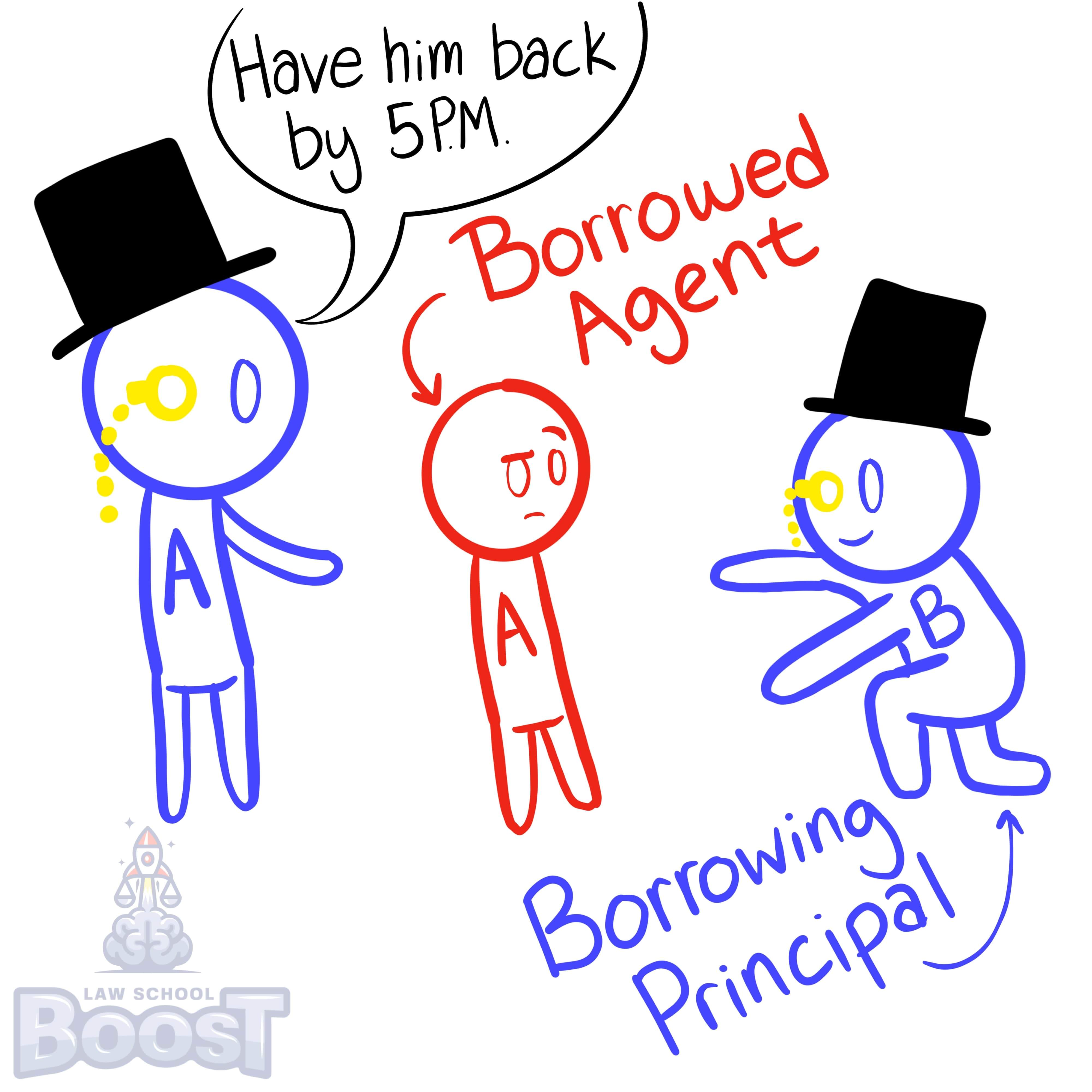❤️
Agency • Liability of Principal for Agent's Torts
AG#004
Legal Definition
A borrowing principal is vicariously liable for a borrowed agent's torts only if there is (1) assent, (2) benefit, and (3) right to control.
Plain English Explanation
This question and answer may be a bit confusing, so let's unpack it. First off, what is a borrowed agent? Imagine if Sam owns a pizza parlor and Bob is his employee. Here, Sam is the principal and Bob is Sam's agent. Now, imagine that Amy operated a construction company and Jill was one of her truck drivers. Here, Amy is the principal and Jill is Amy's agent. Sam and Amy are friends.
One day, Sam has a bunch of garbage he needs taken to the dump, so he calls Amy up and says, "Hey, Amy, can you help me take a bunch of trash to the dump? I don't have a truck." Amy says, "Of course, Sam! I'll send Jill right over with the truck!"
At this point, Jill is an agent, but she is not Sam's agent. Rather, Jill is being borrowed from another principal who controls her, Amy. This is the idea behind borrowed agents.
The issue now is, "If Jill commits a tort while acting as a borrowed agent, who is liable?" That depends. On what? Well, let's break that down:
If Amy just sends Jill over to Sam's pizza place with a truck, but with no clear instruction on what to do, then Sam will probably have to direct her by saying, "Jill, please pick up all this trash, place it in your truck, and drive it over to the City Dump." Here, Sam has assented to Jill performing the task, and Sam benefits from Jill's efforts, and Sam has the right to control Jill. Thus, if Jill gets in a car accident while driving to the City Dump, Sam will be liable.
In contrast, imagine if when Sam called Amy for help, Amy said, "Yeah, not a problem. Just leave the trash back in your ally and I'll have Jill swing by and take it to the dump." Sam then leaves the trash in the ally and, later that night, Jill stops by and loads it in her truck before driving to the dump. On the way to the dump, she's in an accident. Here, Amy is liable. Why? Because Sam had no control over Jill, which is a necessary element to establish vicarious liability over her actions.
One day, Sam has a bunch of garbage he needs taken to the dump, so he calls Amy up and says, "Hey, Amy, can you help me take a bunch of trash to the dump? I don't have a truck." Amy says, "Of course, Sam! I'll send Jill right over with the truck!"
At this point, Jill is an agent, but she is not Sam's agent. Rather, Jill is being borrowed from another principal who controls her, Amy. This is the idea behind borrowed agents.
The issue now is, "If Jill commits a tort while acting as a borrowed agent, who is liable?" That depends. On what? Well, let's break that down:
If Amy just sends Jill over to Sam's pizza place with a truck, but with no clear instruction on what to do, then Sam will probably have to direct her by saying, "Jill, please pick up all this trash, place it in your truck, and drive it over to the City Dump." Here, Sam has assented to Jill performing the task, and Sam benefits from Jill's efforts, and Sam has the right to control Jill. Thus, if Jill gets in a car accident while driving to the City Dump, Sam will be liable.
In contrast, imagine if when Sam called Amy for help, Amy said, "Yeah, not a problem. Just leave the trash back in your ally and I'll have Jill swing by and take it to the dump." Sam then leaves the trash in the ally and, later that night, Jill stops by and loads it in her truck before driving to the dump. On the way to the dump, she's in an accident. Here, Amy is liable. Why? Because Sam had no control over Jill, which is a necessary element to establish vicarious liability over her actions.
Visual Aids


Related Concepts
Generally, when are an agent's actions within the scope of a principal-agent relationship?
What are the requirements for a principal-agent relationship to be established?
What is the difference between a frolic and a detour?
When are intentional torts considered within the scope of an agency relationship?
When is a principal liable for torts committed by an independent contractor?
When is a principal liable for torts committed by a sub-agent?
When is a principal vicariously liable for torts committed by its agent?


